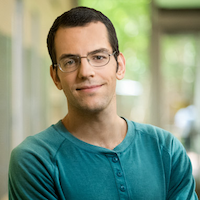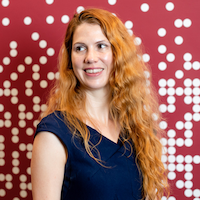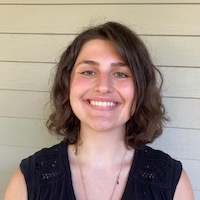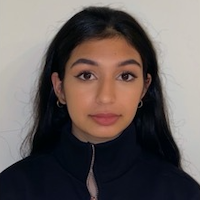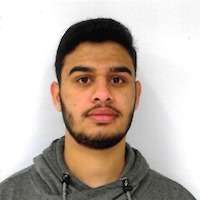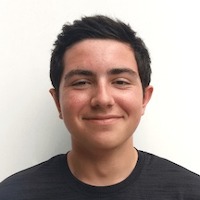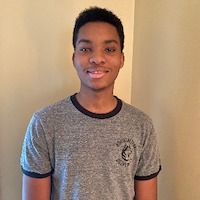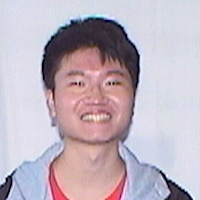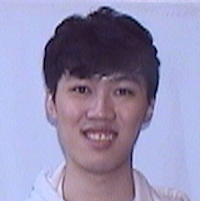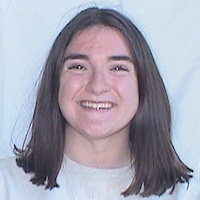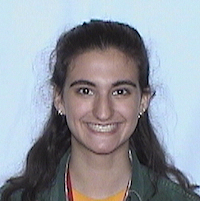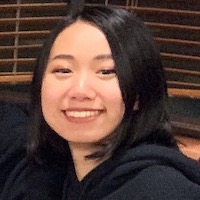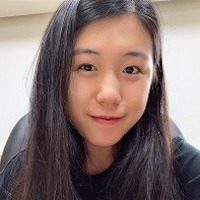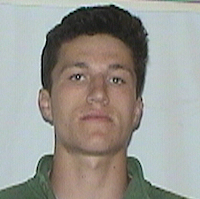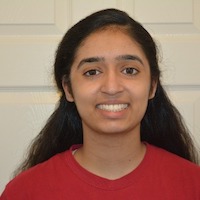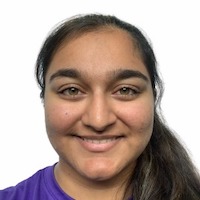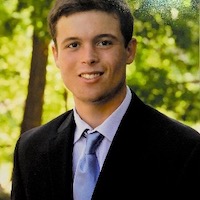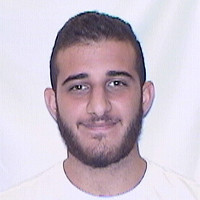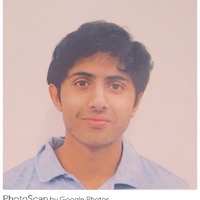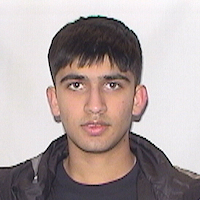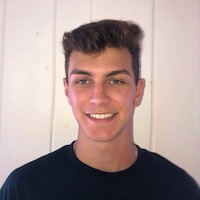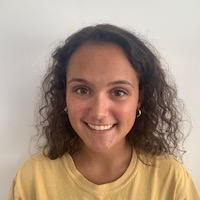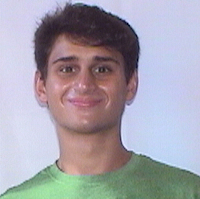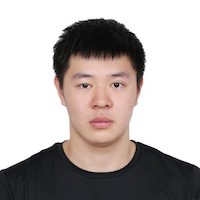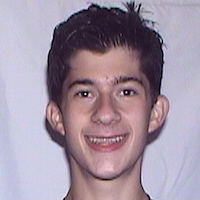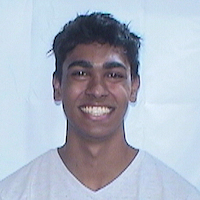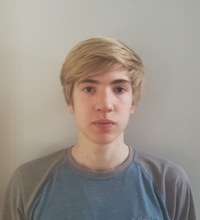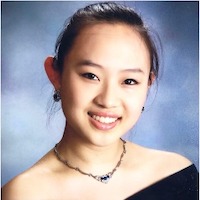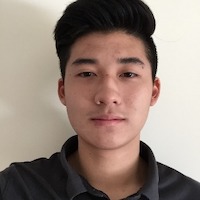General
Office hours:
Here is a calendar of all the office hours that the course staff offer. All office hours will be held virtually via the Khoury office hour website. If you would like to speak to an instructor and you cannot make it to their office hours, send an email to set up a meeting. If you have a general question and cannot make it to anyone’s office hours, post to Piazza (see below).
For the most part, staff members will have the same office hours every week. Before going to someone’s hours, check where they will be on the calendar below. Should there be a change to someone’s hours, there will be a post on Piazza and the calendar will be updated.
People
Instructors:
|
|
|
|
|
|
TAs:
|
|
|
|
|
|
|
|
|
|
|
|
|
|
|
|
|
|
|
|
|
|
|
|
|
|
|
|
|
|
|
|
|
|
|
|
|
|
|
|
|
|
|
|
|
|
|
|
|
|
|
|
|
|
|
|
|
|
|
|
|
|
|
|
|
|
|
|
|
|
|
|
|
Your TAs help run the labs, grade the homework sets, help grade the exams, and hold office hours. In general, they are apprentice teachers and students who are interested in helping others learn. At the same time, though, they are your peers who have taken the course, and can see your problems from your perspective.
Communications
If you need help, you may talk to any of the instructors, the TAs or tutors during their office hours.
Use NEU email to reach any of the course staff; usernames are given above.
Piazza is an on-line forum for class discussions. Anybody can post a question and anybody else can reply. (Please do not post grading questions to Piazza. It’s best to email the grader instead for those kinds of questions.)
Before posting, check whether or not your question has already been asked. If it already has been asked and has not yet been answered, provided the question is not more than a day old, it likely will be answered soon. Do not double post.
Posting any parts of a solution to any parts of a homework assignment is considered cheating. You don’t want to do this. Limit your answers to other students to providing clarity when needed and hints when appropriate. This is good practice should you ever want to be a tutor or a TA :)
Note: anonymity on Piazza is implemented to make you anonymous to students but not to staff members.
General Policies
Late assignment policy: An assignment that is one second late is automatically counted as late. Late submissions will be accepted up to 24 hours late, with a 2% penalty per hour per submission.
When you need an extension because of illness or travel due to university sponsored events pleases contact our course coordinator assistant Nicole Brewer at n.brewer@northeastern to let us know.
Regrade policy: Sometimes mistakes can happen so if you are confused or concerned about your feedback, don’t be afraid to reach out to a grader for further explanation. You must submit any requests for regrading at most 7 days after the homework feedback was released. If you don’t hear from your grader within 3 days please forward your email to your instructor and CC the grader on the email.
Academic honesty: We will strictly enforce Northeastern’s academic integrity policy. You may discuss problems with other students, but you may not share or show code to anyone other than your assigned partner or the course staff. Violations of academic integrity will be reported to OSCCR and will have a negative impact on your grade.
Lectures
Sec 2: Mon, Wed and Thurs at 8:00am–9:05am
Churchill Hall 101 Mihajlovikj
Sec 3: Mon, Wed and Thurs at 9:15am–10:20am
Shillman Hall 305 Mihajlovikj
Sec 4: Mon, Wed and Thurs at 10:30am–11:35am
West Village F 020 Mihajlovikj
Sec 5: Mon, Wed and Thurs at 10:30am–11:35am
Richards Hall 458 Park
Sec 6: Mon, Wed and Thurs at 1:35pm - 2:40 pm
Ell Hall AUD Razzaq
Sec 7: Mon, Wed and Thurs at 1:35pm - 2:40 pm
Mugar Life Sc. 201 Nunez
Sec 8: Mon, Wed and Thurs at 8:00am–9:05am
Intl Village 019 Hemann
Sec 9: Mon, Wed and Thurs at 9:15am - 10:20am
East Village 002 Hemann
Sec 11: Mon, Wed and Thurs at 4:35 pm - 5:40 pm
Richards Hall 236 Park
Lectures policy:
You are required to read the lecture material for the given lecture before coming to class. During the lectures we will discuss the material covered in the required reading, answer questions, provide additional examples and applications.
It is OK if you do not understand everything when you first read it, but reading about the new concept ahead of the time will give you a chance to anticipate the questions you may have and allow you to follow better the details of explanation during the lectures.
Labs
Section 4: 8:00am-9:40am in WVH 210A
Lead TAs: Daniel Noble, Tristen LiSection 5: 8:00am-9:40am in WVH 210B
Lead TAs: Surbhi Gulati, Gina DavisSection 6: 8:00am-9:40am in WVH 212
Lead TAs: Karen Xu, Zachary ColucciSection 7: 9:50am - 11:30am in WVH 210A
Lead TAs: Eli Hirschfeld, Karen XuSection 8: 9:50am - 11:30am in WVH 210B
Lead TAs: Elaina Phalen, Anurag ArasanSection 9: 9:50am - 11:30am in WVH 212
Lead TAs: Angela Rhee, Dhivas SugumarSection 10: 11:45am - 1:25pm in WVH 210A
Lead TAs: Gavin White, Eli HirschfeldSection 11: 11:45am - 1:25pm in WVH 210B
Lead TAs: Matt McCoy, Ally ChaoSection 12: 11:45am - 1:25pm in WVH 212
Lead TAs: Ryan Schaefer, Zekai ShenSection 13: 1:35pm - 3:15pm in WVH 210B
Lead TAs: Mark Apinis, John LamSection 14: 1:35pm - 3:15pm in WVH 212
Lead TAs: Jessie Yang, Ryan SchaeferSection 15: 3:25pm - 5:05pm in WVH 210B
Lead TAs: Jessie Yang, Kaylee GerSection 16: 3:25pm - 5:05pm in WVH 212
Lead TAs: Nathanial Krauss, Harini BodduSection 17: 5:15pm - 6:55pm in WVH 210A
Lead TAs: Harini Boddu, Victoria AdebiyiSection 18: 5:15pm - 6:55pm in WVH 210B
Lead TAs: Kyle Sawicki, Edward ChanSection 19: 5:15pm - 6:55pm in WVH 212
Lead TAs:Eric Sun, Elyssa AdamsSection 20: 5:15pm - 6:55pm in HA 221
Lead TAs: Sujeet Kumar Gandhi, Elaina PhalenSection 21: 7:05pm - 8:45pm in WVH 210A
Lead TAs: Sahana Tankala, Edward ChanSection 22: 7:05pm - 8:45pm in WVH 210B
Lead TAs: Kyle Sawicki/Eric SunSection 23: 7:05pm - 8:45pm in WVH 212
Lead TAs: Victoria Adebiyi, Elyssa AdamsSection 24: 7:05pm - 8:45pm in HA 221
Lead TAs:Zekai ShenSection 25: 8:00am - 9:40am in BK 315
Lead TAs: Iris Wang, Isaac SadhwaniSection 26: 3:25pm - 5:05pm in FR 129
Lead TAs: Vishal Ramesh, John LamSection 27: 5:15pm - 6:55pm in BK 315
Lead TAs: Mark Apinis, Sahana Tankala
Labs policy
The goal of the labs is to see in practice problems that illustrate the concepts covered in the lectures, and to prepare you for the next programming assignment. Attendance is required.
There is a lot of technical detail related to running Java programs that will be covered in the early labs. Later labs will focus more on design questions and on good Java programming practice.
In-lab Quizzes and Code review
We will be running quizzes during several of the labs, possibly without prior warning. You must be present in lab to take the quiz. The goal of the quizzes is to see that you are familiar with the most basic concepts covered during the recent lectures, labs, and assignments.
Quizzes will be graded. The intent is to assess your progress in the course in smaller chunks rather than just through lengthy midterm exams.
We may also be conducting code reviews in labs, of either the material from that lab or from the prior week’s homework. As presenters, be prepared to explain your design choices to your classmates. As reviewers, pay attention both to how the presenters organize their explanations and how they organize their code, and feel free to ask clarifying questions about either.
Computing Environment
You will complete your assignments (other than the first one) using the Eclipse IDE. Though, if you feel more comfortable, you may choose to use another IDE (e.g. NetBeans) or work directly from the command line, but you and your partner must both be comfortable with the chosen programming environment, and the staff may not be able to assist you with issues encountered in other environments.
You will use the handin server to submit your homework. You may submit as many times as you wish, though submitting too frequently will be detected and rate-limited, to ensure fairness for other students. Be aware that close to the deadline when everyone submits all at once, the server will become less responsive. This means that it might take up to half an hour for your submission to be processed and for you to receive feedback. Therefore, please do not wait until last minute to submit.
Assignments
There will be one or two problem sets each week. As with CS2500, the problem sets will include finger exercises and practice problems, that you are strongly encouraged to look at and confirm that you can solve. You are welcome to bring solutions to these problems to the course staff during the semester for informal feedback on how you’re doing.
The graded problems are to be solved collaboratively with your partner when you are assigned one. The problems will consist of structured programming assignments that may be based on the work done in previous weeks, and may also include more creative projects where you can practice your design skills.
Due Dates: Thursdays at 9:00pm, unless otherwise specified. See the late policy above.
Note: unlike CS2500 semester, you will submit each problem separately on the handin server. This is for your benefit: the server will attempt to compile and run your program against automated test cases. Having separate submissions for each problem means that a syntax error in one problem won’t immediately prevent your other problems from compiling also. Be careful to submit the correct answers to the correct problems.
Pair Programming
You must work on some of the problem sets in pairs. We will assign you a partner. We may switch partners a few times during the semester.
Important Pair programming means that you and your partner work on the problem sets jointly. You read them together and you work on the solutions together. One of the lab’s purposes is to teach you how to work in pairs effectively; indeed, pairs are provably more effective thanindividuals in programming. The rough idea is this: One of you plays pilot, the other co-pilot. The pilot works on the keyboard and explains aloud what is going on; it is the co-pilot’s responsibility to question everything. After a problem is solved to the satisfaction of both, you must switch roles.
Every partner must be able to solve every homework problem in the end. In other words, you must be able to solve every homework problem on your own.
If you are having difficulties working with your partner, please inform your lab TA or your instructor quickly: we cannot help if we don’t know there’s a problem.
Academic Integrity
Any and all submitted work must be your own. If an assignment/lab is to be completed individually, only you and the course staff are allowed to look at your code. If an assignment/lab is to be completed with a partner, only you, your partner and the course staff are allowed to look at your code.
You are allowed to discuss the problem sets with others, so long as you acknowledge (in comments, in your submitted files) whoever you discussed the problem with. Discussing the "what to solve" is OK, discussing "how to solve" is a slippery slope. Once you start discussing possible solutions, you may not realize when you have crossed the line. Ultimately we will judge you by the work you submit. If you think you are smart enough to use somebody’s code and hide it well enough to deceive us, please channel that intelligence towards completing the assignment yourself!
NOTE: Be aware that while submitting someone else’s code is clearly a violation, so is sharing your code with others, even if you truly just mean to help. You will be doing your friend or peer a disservice by helping them this way. Please direct them to the course staff instead.
Outside an academic environment, sharing code with unauthorized parties can be a criminal offense and have severe and unanticipated consequences.
Submitting code that is not your own or sharing your code to unfairly help another student will be considered a violation of the University’s Academic Integrity Policy (page 40 of the 2016-2017 Undergraduate Student Handbook). Violations of academic integrity will be reported to OSCCR, and will have strong consequences on your grade, from an automatic zero on the assignment to failing the course.
If you are ever unsure of whether sharing is unacceptable or not, or you are struggling in the course, please contact one of the course staff. We are here to help.
Exams
Exams will be held online on Canvas. They will be 2 hours long. The tentative dates are given bellow. More information in regards to what you could use on the exams will be provided as we get closer to the exam dates.
Exam 1: Thursday, February 24
Exam 2: Thursday April 7
Grades
45% homework. Most homeworks will be equally weighted, but larger projects that will take more time will be weighted more.
50% exams, with exact proportions to be determined.
5% quizzes
As before, you can use the handin server to see the current weights of each assignment, and your approximate grade in the course so far. The exact weights of assignments, quizzes and exams will change during the semester, depending on exactly how many of each we have. We will let you know when we update these weights, and will try to keep it as infrequent as possible.
The grades will computed on an absolute basis: there will be no overall curving. The instructor may choose to curve an individual homework or exam, but please do not bank on such a chance.
The mapping of raw point totals to letter grades is given below. Please note that these grade boundaries may move slightly at the discretion of the instructor, but the grade boundary for A is unlikely to change. Grades are not rounded: for instance, earning a 92.5% does not imply we will round up to a 93% and hence to an A.
Range: 93% 90% 86% 83% 80% 76% 73% 70% 66% 63% 60% 0% Letter grade: A A- B+ B B- C+ C C- D+ D D- F
